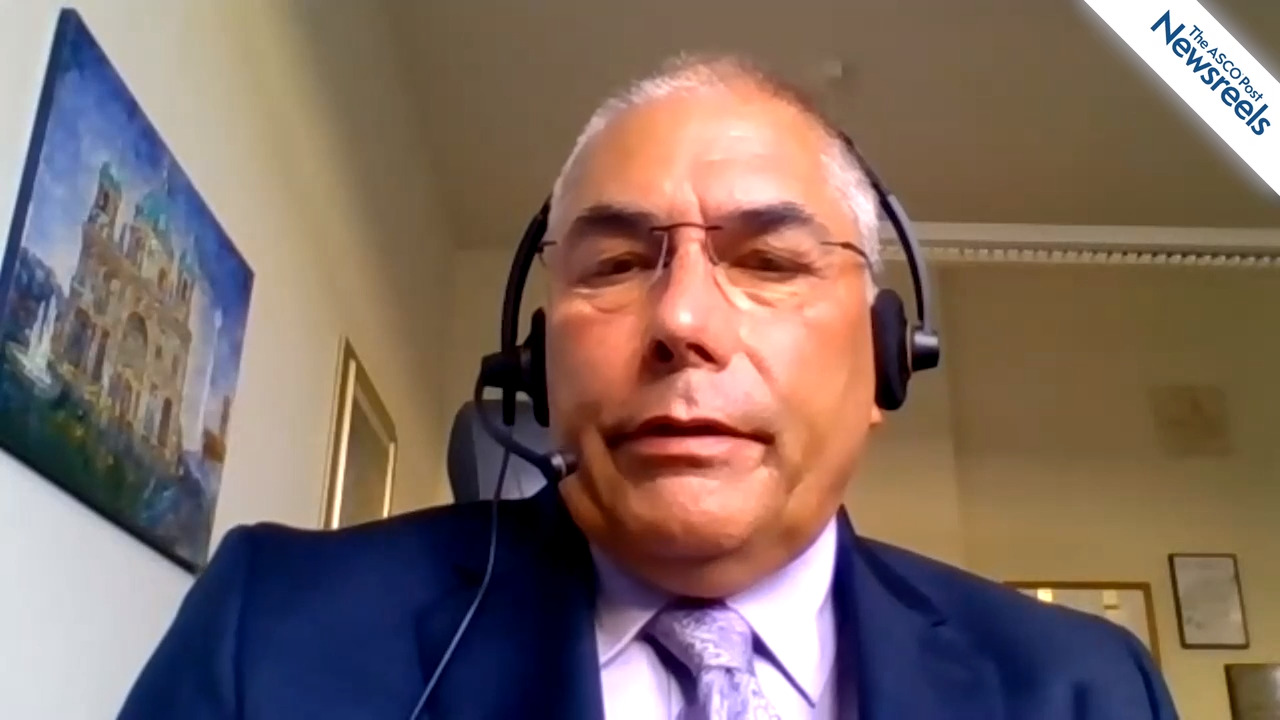Rachel E. Sanborn, MD, on NSCLC: Maximizing the Benefits of Targeted Therapies for EGFR-Mutated Disease
ASCO20 Virtual Scientific Program
Rachel E. Sanborn, MD, of the Providence Cancer Institute, discusses three key abstracts on EGFR-mutated non–small cell lung cancer: a final overall survival analysis of bevacizumab plus erlotinib; concurrent osimertinib plus gefitinib for first-line treatment; and first-line treatment with a tyrosine kinase inhibitor with or without aggressive upfront local radiation therapy (Abstracts 9506, 9507, 9508).
The ASCO Post Staff
Peter Reichardt, MD, PhD, of Helios Klinikum Berlin-Buch, discusses the 10-year survival analysis of 3 years vs 1 year of adjuvant imatinib for patients with high-risk gastrointestinal stromal tumor. The study found that about 50% of deaths can be avoided with longer imatinib treatment (Abstract 11503).
The ASCO Post Staff
Scott Kopetz, MD, PhD, of The University of Texas MD Anderson Cancer Center, discusses phase III results of the BEACON CRC study, which confirmed that, compared with standard chemotherapy, encorafenib plus cetuximab with or without binimetinib improved overall survival and objective response rate in previously treated patients with BRAF V600E–mutated metastatic colorectal cancer (Abstract 4001).
The ASCO Post Staff
Suresh S. Ramalingam, MD, of Emory University, discusses a 3-year update from the CheckMate 227, Part 1, trial, which showed that nivolumab plus ipilimumab continued to provide durable and long-term overall survival benefit vs platinum-doublet chemotherapy as first-line treatment for patients with advanced non–small cell lung cancer (Abstract 9500).
The ASCO Post Staff
Egbert F. Smit, MD, PhD, of the Netherlands Cancer Institute, discusses interim results from the DESTINY-Lung01 trial of fam-trastuzumab deruxtecan in patients with HER2-mutated metastatic non–small cell lung cancer. The data show clinical activity with high overall response rates and durable responses (Abstract 9504).
The ASCO Post Staff
Richard L. Schilsky, MD, Chief Medical Officer of ASCO, talks about some of the most important and practice-changing findings presented this year at the ASCO20 Virtual Scientific Program, including the use of targeted and immunotherapies in earlier lines of therapy, where they have made a significant impact.





